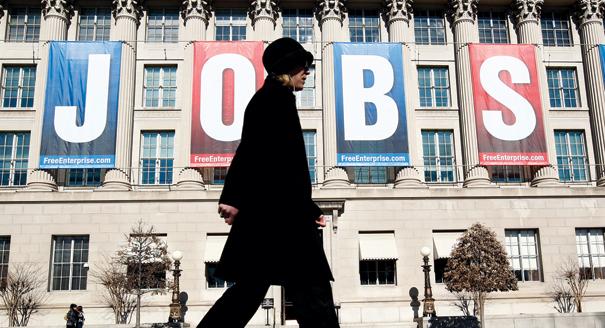The Labor Department monthly employment report Friday will tell us a lot about the health of the economy—much of it not good.
Forecasters expect the monthly tally of new jobs to come in at about 190,000. That’s well below last year’s pace and a figure significantly below that modest target would indicate the economy is at high risk of another recession.
Since the Obama recovery began, the economy has expanded at a paltry 2.2 percent annual pace, and factoring in recessions the overall rate of economic growth has been only 1.8 percent since the turn of the century. Consequently, in recent years new jobs have been created at about half the pace of the Reagan years.

During the Reagan-Clinton era, when more aggressive growth policies and deregulation were in the vogue, the economy grew at a 3.4 percent annual pace. Family incomes rose an average of $9,250, whereas during the George W. Bush-Barack Obama era, those have fallen about $4000.
Consumers, the engine of all advanced economies, continue to spend, but the strong dollar is pinning down exports and cheap imports are battering U.S. manufacturers. Businesses are becoming increasingly skeptical about expanding in the United States, and giants likeFord and Carrier are moving facilities to more business friendly Mexico.
Troubles in China can only be blamed to a point. Its miracle was fueled by a cheap currency—and that has pulled down U.S. growth by destabilizing American manufacturing—but also by government banks that finance factories that run perpetual losses to sell coffee makers and the like to American consumers. Both the recent Bush and Obama administrations can be blamed for not taking the kind of tough measures against Chinese protectionism advocated by Donald Trump and liberal New York Times columnist Paul Krugman.
At home, Dodd-Frank has hamstrung community banks with mindless regulations when they had little to do with the financial collapse. They simply cannot lend to local enterprises as they once did, and small businesses are closing more rapidly than they are opening. Hence a lot of those Silicon Valley innovations don’t translate into jobs in America and don’t get applied by emerging enterprises to foster productivity growth—the mother’s milk of rising living standards.














Leave A Comment